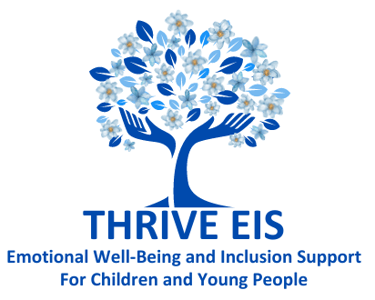One - 2 - One Mentoring
The aim of this programme is to provide emotional support, set meaningful goals, and guide children and young people towards realising their full potential, while helping them view themselves in a more positive light. Children and young people referred to this service may need support in learning practical strategies and skills to self-regulate their emotions, behaviours, and reactions, as well as to better understand the cycle of thoughts, feelings, and behaviours.
Our mentors also focus on nurturing the exploration of new interests and talents, encouraging personal growth and self-confidence. By offering tailored support, we aim to empower children and young people to build resilience, improve emotional well-being, and develop the skills they need to succeed in all areas of their lives.
The mentoring sessions are child or young person-led, meaning our mentors actively encourage them to contribute to the programme while also listening attentively to their thoughts and feelings. This approach helps build a relationship of trust, where the young person feels valued and heard.
Each mentoring session is planned in advance in collaboration with the child or young person, but the session remains flexible. If the child or young person chooses to take the session in a different direction—whether it's extending an activity, revisiting a topic, or addressing a current challenge—they are fully supported in doing so. Some activities may take longer than a single session, and if a young person wishes to focus on a particular difficulty, they are encouraged to explore it rather than follow the pre-planned session.
Through reflective practice, mentors evaluate each session to ensure the support provided is tailored to the child or young person’s needs. This helps confirm that the programme is being delivered effectively and allows for adjustments, ensuring that the child or young person receives the optimal support to move forward positively.
What is provided
Session duration
The mentoring sessions are typically held for one hour each week. However, the length of the sessions can be adjusted based on the individual needs and circumstances of the child or young person. For example, a child or young person with an ADHD diagnosis may find an hour too long, leading to disengagement. In such cases, the session time can be shortened and broken down into more manageable segments to ensure they have the best chance of engaging positively in the program.
Conversely, the session time may need to be extended if a child or young person is sharing a significant difficulty. Ending the session abruptly could make them feel rejected, potentially leading to disengagement and a loss of trust in their mentor. In these instances, extending the session provides a safe space for the child or young person to fully process their feelings, fostering trust and supporting continued engagement in the program. The goal is always to ensure that the support provided is tailored to their needs, helping them feel heard, valued, and empowered.
Where are the sessions delivered
Mentoring sessions can be delivered at our premises in Tonbridge, at the school or educational setting the child or young person attends, in the family home, or within the community.
*If the session is delivered at the family home, the mentor will not be able to enter the home or conduct the session unless a parent or guardian is present.
** If the session takes place in the community, the parent or guardian must bring the child or young person to the session and pick them up afterward, ensuring they remain nearby during the session for safeguarding purposes.
These measures ensure the safety and well-being of the child or young person throughout the mentoring process.
Who can access the programme
Any child or young person who lives in Tonbridge, Kent, and is between the ages of 7-17 years is eligible for our services.
As an inclusive charity, we do not discriminate, and there is no selection process for our services. Referrals will be allocated in chronological order upon receipt of the referral form.
NB:
However, we would like to highlight that if we determine our services are not suitable for a child or young person, and continuing with our support could potentially put them or their family at further risk or exacerbate the difficulties they are experiencing, we will endeavour to find a more suitable professional organisation. This ensures that they receive the correct support to meet their specific needs.
